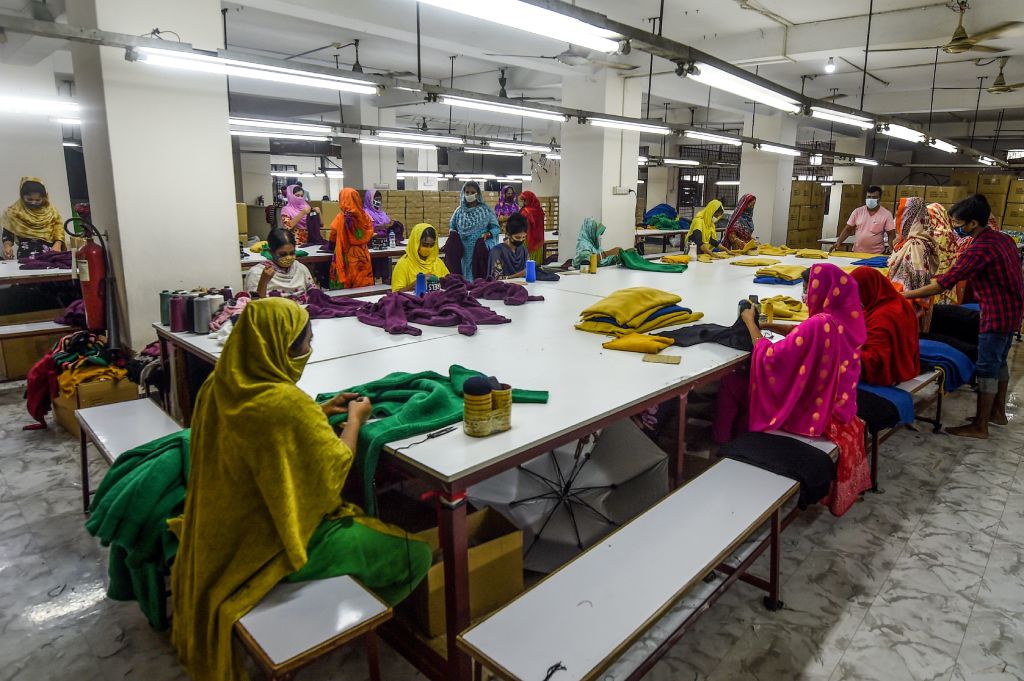On 23 February 2022, the European Commission finally proposed a draft legislation on Corporate Sustainability Due Diligence. Despite some interesting features, it falls far short of what is needed to protect human rights and the environment. Read here the ETUC's initial analysis of the CSDD Directive adopted by the Executive Committee on 17 March 2022.
A strong directive on Sustainable Corporate Due Diligence is desperately needed at a time of rising human rights violations including abuse of labour and trade union rights by major European companies.
Instead, some 238 days after the Commission was scheduled to present the directive, the draft proposal raises real concerns that it delivers much too little to impulse the necessary behavioural changes in business to effectively address and prevent violations of human rights and damage to the environment.
Between 2019-2021, the ETUC was running a project on securing workers’ rights in subcontracting chains through a more consistent EU approach towards subcontracting (Co-financed by EU).
There is a need to create better tools and conditions for workers’ and their representatives to know about their rights and to be informed and consulted about the practices of their company along its subcontracting chain. Strengthening the legal framework on subcontracting and making trade unions’ and workers’ representatives’ involvement an essential part of it would help improving the working conditions for millions of workers in the EU.
The project includes the following outcomes.
- Case studies illustrating how subcontracting is used as a business model (EN), (FR);
- Analysis of legal provisions on subcontracting in the EU (EN), (FR);
- Social Clauses in the Implementation of the 2014 Public Procurement Directives;
- Leftlet including policy recommendations for a consistent EU approach towards subcontracting (EN), (FR), (DE), (ES), (IT):
Recent scandals & human right violations in subcontracting chains have put the issue of due diligence on the global political agenda. For instance, the OECD promotes Due Diligence Guidance for Responsible Business Conduct. Also the ILO promotes due diligence in global supply chains.
At EU level, new legislation imposes certain requirements in subcontracting chains. However, there’s a mismatch of regulations with different scopes and varying impact. In parallel, EU companies increasingly make use of cross-border provision of services.

Subcontracting refers to an increasing business practice when a company hires individuals or companies to complete a project. A subcontracted company or individual may then hire another entity for specific tasks. Subcontracting chains are composed of different undertakings in charge of specific tasks within one bigger project.
It’s a convenient way for businesses to look for external expertise without a long-term commitment. It’s also attractive for the contractor as he or she can avoid potential liability of legal obligations, such as employment rights.
In a globalised world, subcontracting chains can easily lead to exploitation. It also blurs the traditional employer/ employee relationship: employees’ representatives are left without a counterpart to dialogue and bargain with. Furthermore, without due diligence on the main contractor it can lead to violation of the applicable labour law and health & safety obligations. We need effective legislation to impose a duty of diligence on multinational companies. They need to be hold responsible for monitoring and securing decent working conditions throughout their supply chain and contractors. The ETUC is mobilised and call for a European directive on mandatory human rights due diligence and responsible business conduct.
